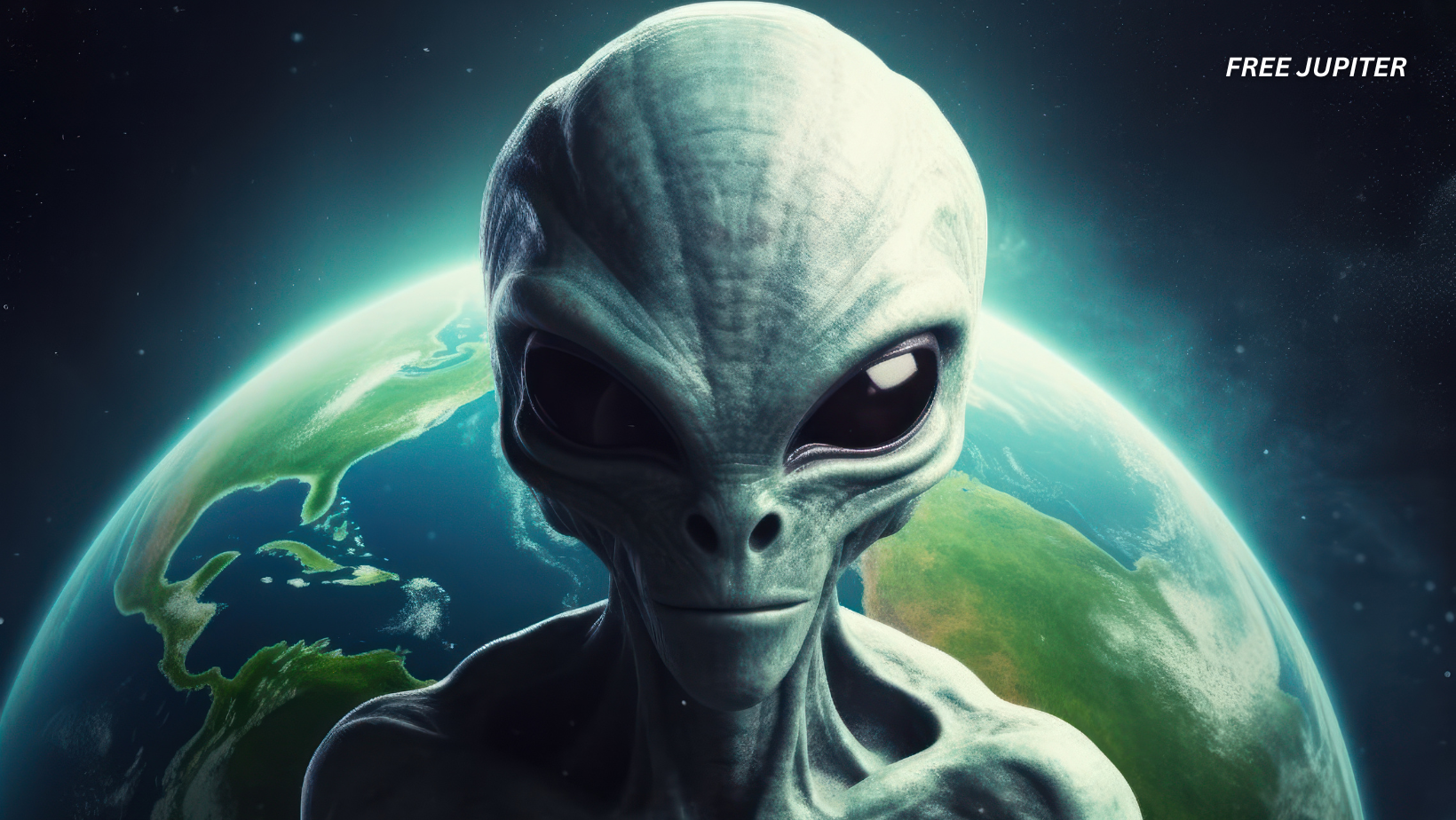Science fiction has long filled our imaginations with images of buzzing UFOs, alien invasions, and grand intergalactic councils deciding the fate of humanity. From Star Trek to The X-Files, we’ve been raised on the idea that intelligent life is scattered across the cosmos, just waiting to make contact.
Yet, despite decades of searching — from powerful radio telescopes scanning the heavens to robotic explorers prowling Mars — we’ve found nothing. Not a single undeniable signal. Not a trace of extraterrestrial technology. Just silence.
So, where is everybody?
This question sits at the heart of one of science’s greatest mysteries — and it’s exactly where the Zoo Hypothesis enters the scene, offering a strange but oddly comforting explanation.
Maybe the aliens are out there.
Maybe they know about us.
And maybe they’ve chosen not to say hello.
The Great Cosmic Silence: Setting the Stage
The universe is old — around 13.8 billion years old, to be precise — and unimaginably vast. With hundreds of billions of galaxies, each containing hundreds of billions of stars, it feels statistically impossible that Earth is the only world with intelligent life.
This contradiction — the high probability of life versus the lack of evidence for it — is known as the Fermi Paradox, named after physicist Enrico Fermi, who famously asked, “Where is everybody?”
Scientists have spent decades proposing possible answers. Maybe life is extremely rare. Maybe civilizations inevitably self-destruct. Or maybe, just maybe, we’re part of a controlled experiment — a cosmic terrarium being quietly observed by advanced beings who prefer not to interfere.
That, in essence, is what the Zoo Hypothesis proposes.
Read more: Why Earth Is the Only Known World In The Universe Where Fire Burns
The Origins of the Idea
The idea was first formally introduced by John A. Ball, a radio astronomer at MIT, in 1973. Ball proposed that advanced extraterrestrial civilizations might intentionally avoid contacting us, in the same way humans observe animals in a zoo or preserve — from behind a barrier, without disturbing their natural behavior.
According to Ball, the universe could be teeming with civilizations, but these beings might have collectively agreed to a “hands-off” policy when it comes to Earth. We could be a developing planet — intelligent, but not yet ready for cosmic interaction.
It’s a concept that mirrors the “Prime Directive” from Star Trek: a moral code that forbids interfering with the natural evolution of less advanced civilizations.
Why Would They Hide From Us?
There are several possible reasons why intelligent extraterrestrials might choose to stay hidden.
- Ethical Restraint – Advanced civilizations might have a strict rule against interfering with younger ones. They could see contact as potentially harmful — the equivalent of dropping modern technology into an ancient tribe’s hands before they’re ready to understand it.
- Scientific Observation – Like zoologists watching animals in their natural habitat, these beings might simply be studying us — our evolution, societies, and cultures — to learn how intelligent species develop.
- Cultural Preservation – It’s possible they fear disrupting the diversity of emerging civilizations across the galaxy. Contact with a superior species could erase our uniqueness or stall our natural progress.
- Experimentation – A more unsettling interpretation is that we are part of a controlled experiment. Perhaps they’re watching how we handle technology, conflict, or even environmental crises — gathering data on how civilizations evolve and, sometimes, collapse.
Whether these motives are benevolent, neutral, or coldly scientific is anyone’s guess.
The Fermi Paradox and the Cosmic “Do Not Disturb” Sign
The Zoo Hypothesis fits neatly as one possible answer to the Fermi Paradox. If intelligent life is common, then their absence from our skies might not be due to distance or extinction — but by choice.
Carl Sagan and William I. Newman, in their 1978 paper Galactic Civilizations: Population Dynamics and Interstellar Diffusion, explored this very possibility. They pointed out that while we can’t predict the motives or ethics of advanced alien species, it’s worth considering the social reasons that might prevent them from contacting us.
In other words, maybe the reason we don’t see them isn’t scientific — it’s sociological. They might have rules, cultural taboos, or interstellar treaties about engaging with primitive species like ours.
Just as humans establish wildlife sanctuaries where contact is limited to protect natural ecosystems, advanced civilizations might see Earth as a “protected zone” in the galactic ecosystem.
The Humbling Thought: We Might Not Be That Interesting
Not everyone buys the idea of an interstellar wildlife reserve.
Daniel Whiteson, a particle physicist and co-author of Frequently Asked Questions About the Universe, finds the concept amusing but doubtful. “I think that’s pretty unlikely,” he said. “It puts us at the center of things. And it also seems implausible because it requires a vast galactic conspiracy. When was the last time anyone managed to keep a secret that big?”
He has a point. Human societies can’t even keep secrets for long within their own borders. The idea that multiple civilizations across countless star systems could coordinate a universal silence — just to keep Earth in the dark — stretches plausibility.
And there’s another issue: anthropocentrism, or the human tendency to assume that everything revolves around us. The Zoo Hypothesis subtly suggests that humanity is special enough to be worth observing, when in reality, we could just be one of countless species evolving on insignificant planets.
To the cosmic zoo’s hypothetical caretakers, we might not even register as particularly fascinating — more like background noise in a galaxy full of other stories.
Read more: Scientists Say We Could Nuke “City-Killer” Asteroid 2024 YR4 Before It Hits the Moon, If We Act Fast
Are There Clues That Support the Hypothesis?
As imaginative as it sounds, the Zoo Hypothesis doesn’t come with much concrete evidence. However, it aligns with certain puzzling aspects of our search for extraterrestrial intelligence (SETI):
- The “Great Silence” – Despite decades of listening for radio signals, we’ve detected no confirmed evidence of artificial communication. If other civilizations are deliberately avoiding us, that silence makes sense.
- The “Wow!” Signal – In 1977, astronomers recorded a powerful radio burst that lasted 72 seconds and appeared to come from deep space. It never repeated, and its source remains unknown. Could it have been a brief accidental transmission from a civilization that otherwise hides its presence?
- Lack of Megastructures – We’ve searched for signs of vast alien engineering projects — like Dyson spheres, hypothetical constructs that surround stars to harness their energy — and found none. If aliens are deliberately concealing their existence, this could explain why.
Still, none of this proves the hypothesis. It merely keeps it alive as an entertaining, if speculative, possibility.
What If We Tried to Reach Out Anyway?
Some scientists and organizations think we shouldn’t just wait to be contacted — we should actively send messages into space.
The nonprofit group Messaging Extraterrestrial Intelligence (METI) advocates broadcasting signals to nearby star systems, hoping that someone — or something — might notice. If the Zoo Hypothesis is correct, then our messages could act as a kind of interstellar invitation, signaling that humanity is mature enough to handle contact.
But not everyone agrees this is a good idea. Critics argue that sending signals might expose us to unnecessary risks. After all, if the cosmic zookeepers are keeping us isolated for a reason — perhaps to protect us from more aggressive civilizations — then announcing our presence could backfire.
In that sense, Earth might be safer inside the fence.
Read more: Earth Receives Final NASA Laser Transmission From 218 Million Miles Away
The Cosmic Curtain
At its heart, the Zoo Hypothesis is both humbling and haunting. It suggests that humanity might be living under an invisible glass dome — a small, blue planet in a vast interstellar park, surrounded by civilizations so advanced that we can’t even perceive their presence.
Perhaps, one day, when we’ve matured enough as a species — when we’ve learned to cooperate, care for our planet, and manage our technologies responsibly — the curtain will finally lift. Maybe then, the keepers of the cosmic zoo will step forward and introduce themselves.
Until that day, we continue to listen, to search, and to wonder. Because whether we’re being watched or not, the silence of the stars remains one of the greatest mysteries of all.
Featured image: Freepik.
Friendly Note: FreeJupiter.com shares general information for curious minds. Please fact-check all claims and double-check health info with a qualified professional. 🌱










